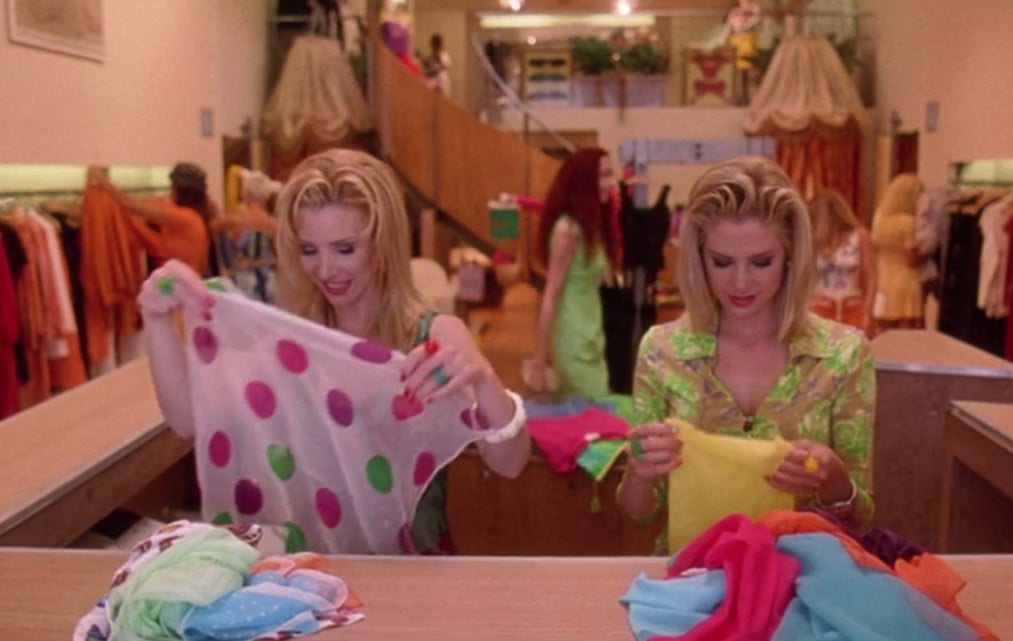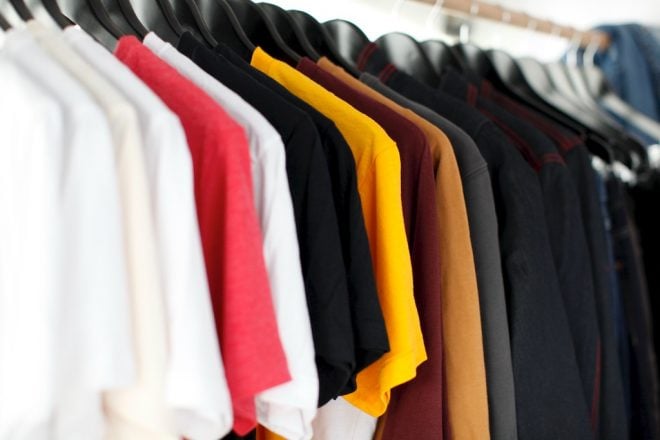What It’s Like To Work In Fast Fashion When You Have An Ethical Mindset
When you have strong values, but you also gotta make coin.

When I got cut off from Centrelink, I needed them coins – and fast.
Luckily, I landed a job. In fast fashion. The challenge? Maintaining my ethical mindset.
Working For A Brand I Haven’t Worn In Years
During my time there, I applied for paid jobs and internships, thinking work wasn’t going to keep me once the Christmas casual contract ended. If that failed, I would’ve looked to Centrelink – again – even if I didn’t want to. But if work did offer me a job, I’d decline because their style wasn’t my style.
Except when I got the “We want to keep you” email, I didn’t decline. I could’ve applied for a job that aligned with my thinking, yes, but remember those gigs I applied for? I was unsuccessful, and I needed a job to support myself during uni. Stat. Also, I found my A-team while working there. While it may not have been my style, but I made do.
What I Wear To Work ≠ What I Wear Outside Of Work

Initially, I bought clothes to wear to work and work only. However, I wasn’t getting plenty of mileage from them when I get, what? Two to three shifts a week?
The move to casual job budget also meant updating the rest of my wardrobe by visiting my go-to op shops and vintage stores. And that meant rocking up to work on my days off only to be asked, “Why don’t you dress like that more often?”
The tension between what I wear to work and outside of work isn’t just felt by me. In a 2017 study on “aesthetic labour”, it was found that some respondents felt there was a disconnect between the brand identity and themselves. While some participants’ “attachment to the brand grew” for others, it diminished.
I count myself as one of the people whose attachment to the brand diminished.
But I’ve come to a point where I can acknowledge that my work self and real self don’t have to be totally separate – when I see something at work, I ask myself, “Is this something I can wear to work, at uni, and at socials?” If it ticks two of the three boxes, then I’ll get it.
Flaunting The New Arrivals Before They’re No Longer New
It’s hard to maintain my ethical mindset when I’m so ingrained in the world of fast fashion. As Mel Campbell wrote for Junkee, consumers are taught to prioritise things like “thrilling at a bargain; coveting the latest trends; identifying with favourite brands; easily fulfilling a functional clothing need; or just finding clothes that feel good”.
After donning new arrivals that soon become old, I either pass them to my sis, sell them at the markets, or donate it to charity, in order to make room for the latest range to flaunt at work. Even though I’m well aware British journalist Lucy Siegle says we should be wearing an article of clothing 30 times.
It’s hard to ignore the reality when you’re working at the forefront of the environmental disaster.
But what do I wear when I don’t like anything from the current stock? Instead of forcing myself to buy something only to dispose of later, I’ll either wear my not-so-new arrivals or don basics until something catches my eye.
Dealing With Faulty Returns
A shift at fits or at the counter is not complete without processing faulty items – like a missing button, a rip in the seams, a broken zipper, or a stain. Customers are always giving me the odd “I know you’re not cheap cheap, but I’m still disappointed” comment.
But it’s the cheap cheap prices that mean we’re paying for so much more than we bargained for. We have “little regard for the enormous environmental and human costs of this rapid-fire supply chain that squeezes margin from those who are most vulnerable”, writes Maddy Newman. Example? The collapse of the Rana Plaza factory that killed over 1,100 workers.
The average Aussie is buying 27kg of new clothing each year. Together, more than 500,000 tonnes of textiles go to landfill. It’s hard to ignore the reality when you’re working at the forefront of the environmental disaster.
And as for that challenge of maintaining my ethical mindset? It’s still a work in progress.
Ryan Bautista is an Arts (Media, Culture and Technology) student at the University of New South Wales. Don’t @ him but pineapple belongs on pizza.
(Lead image: Romy and Michele’s High School Reunion/Touchstone)